October 11, 2023
Announcements
Read the most recent Q&As in the CHSS Teaching Academy’s “Ask a Teacher” advice column. This resource allows you to submit questions to be answered by the CHSS Teaching Academy. Latest Q&As address best practices for structuring a course on Canvas, field trip policies, finding time for course revisions and dealing with problematic student behavior.
News

Students in the Holistic Health course “HH 660: Art as Healing” will host an extraordinary sand painting/mandala exhibition that promises to be a transformative experience for all who attend. This art exhibition is a final class art project. It will be exhibited in the LIB 286 on November 30, 12 noon–6 p.m. All students, faculty and staff are welcome to observe the process of impressive sand paintings/mandalas.
Tibetan sand mandalas are mesmerizing ancient art from, crafted grain by grain, and it holds deep spiritual significance. Often sand paintings are created as a form of meditation and spiritual arts that cultivate a sense of inner tranquility. Once complete, mandalas are dismantled and symbolize impermanence, teaching us to embrace life's transient nature. Don’t miss the sand mandala dissolution process at 5 p.m.
Maria Elena Acosta (MPH, ’18), a research associate in Professor Emma Sanchez-Vaznaugh’s research lab in the Department of Public Health, recently had a study accepted for publication in the journal Preventive Chronic Disease. The study, titled “Fruit and Vegetable Intake among Racially and Ethnically Diverse Children in California: Are there Temporal Patterns?” was led by Acosta and investigated temporal patterns in fruit and vegetable intake among California school age children overall and by race and ethnicity. The authors found favorable temporal changes in fruit and vegetable consumption among children, but not among adolescents, with similar patterns by race/ethnicity. Sanchez-Vaznaugh served as senior author.
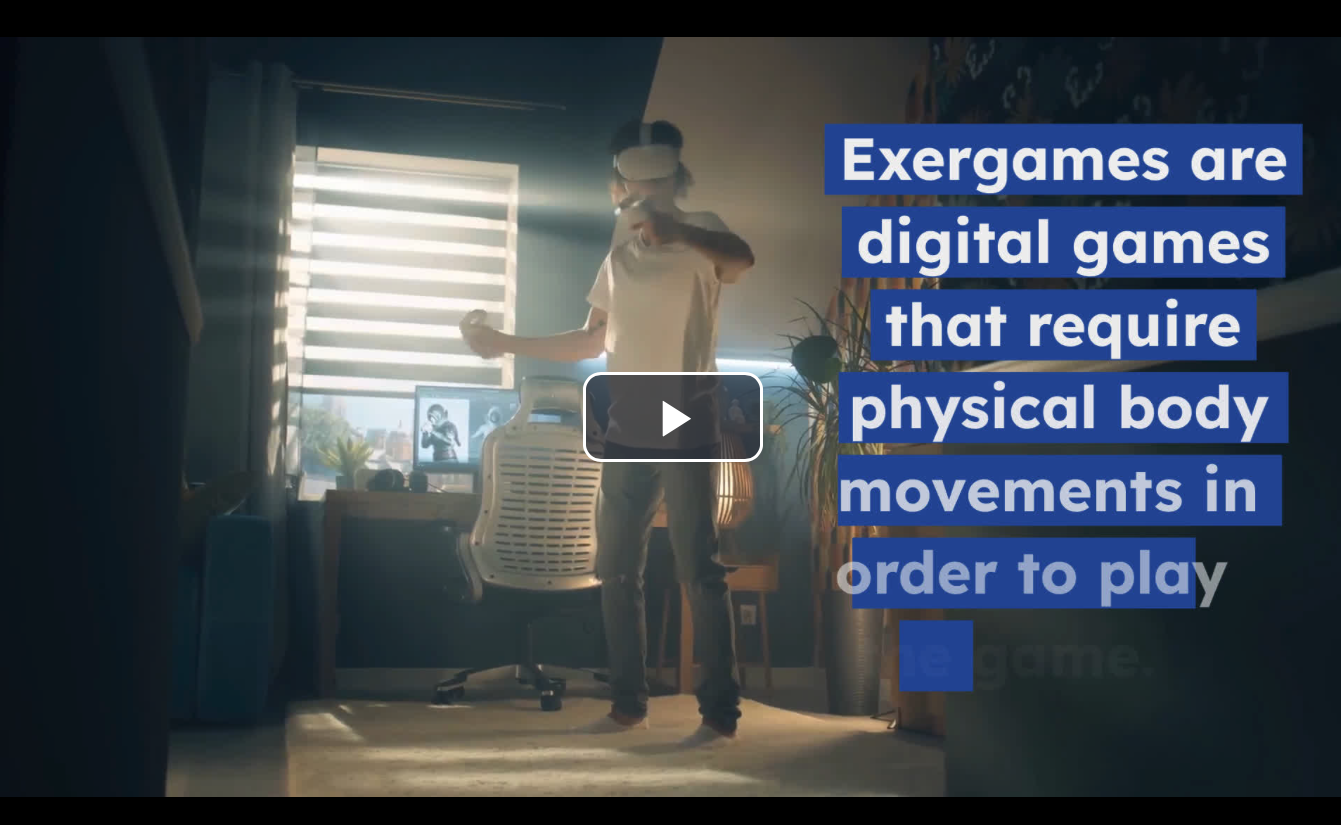
Assistant Professor of Child & Adolescent Development Rachel Flynn and coauthors published a paper, “A Literature Review on the Effects of Exergames on Executive Function in Youth,” in the Fall 2023 issue of Technology, Mind, and Behavior. The paper investigates the effect of exergames (video games that promote cognitive and physical activity simulateously) on youth, focusing on executive function (EF). The literature review examined exergames’ impact on cognition, defined experimental conditions and identified gaps for future research. The authors concluded that exergames have great potential to improve EF in youth.
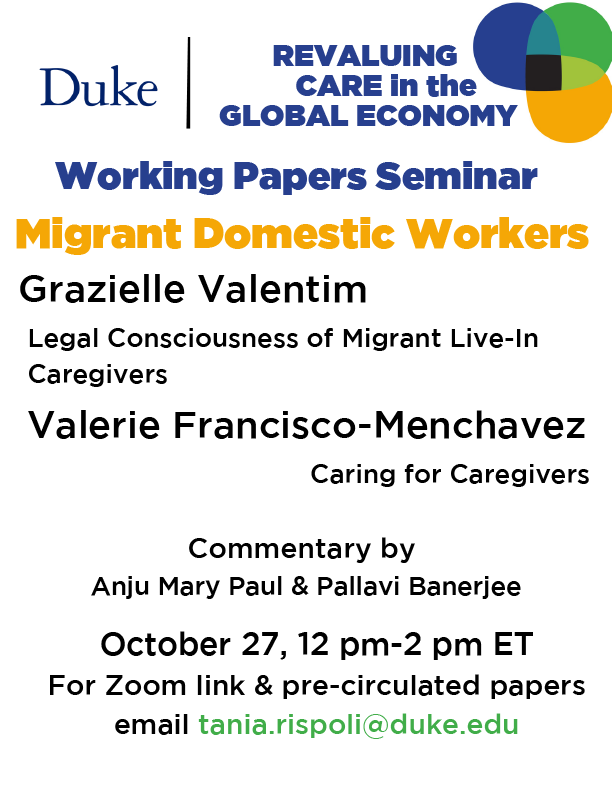
Valerie Francisco-Menchavez, CHSS assistant dean for restorative and transformative racial justice, will give a talk on caring for caregivers in a Duke University Revaluing Care in the Global Economy working papers seminar focusing on migrant domestic workers. The program is on October 27, 9–11 a.m. PST. For Zoom link and pre-circulated papers, email tania.rispoli@duke.edu.
Professor of Public Health Emma Sanchez-Vaznaugh, a social epidemiologist, was awarded a 3.5 million grant from the National Institutes of Health as part of its transformative research to address health disparities and advance health equity at minority serving institutions. Partnering with UCSF co-investigators and community based organizations in Oakland and Chicago, the project will determine the effectiveness of a community-based group intervention delivered in Spanish, designed to prevent HIV among Latinx immigrants who identify as gay/bisexual men or men who have sex with men. The intervention focuses on addressing racism and homophobia as factors shaping HIV risk and uses a community-based approach centered on community involvement as means to promote sexual health and to build community. One of our nation’s major public health priorities is to reduce racial/ethnic health inequities, thus the study will help move these efforts forward.
Events
Monday, Oct. 16, 12:15–1:30 p.m., LIB 121 (Zoom link will also be provided)
Interested in a public health career in research, particularly in quantitative data analysis? Learn from three faculty members in the Department of Public Health who have effectively applied their skills to learning about and addressing public health challenges!
Faculty Presenters: Fumika Matsubara, Rochelle-Jan Dionisio Reyes, Nancy Carmona
Moderator: Juliana van Olphen
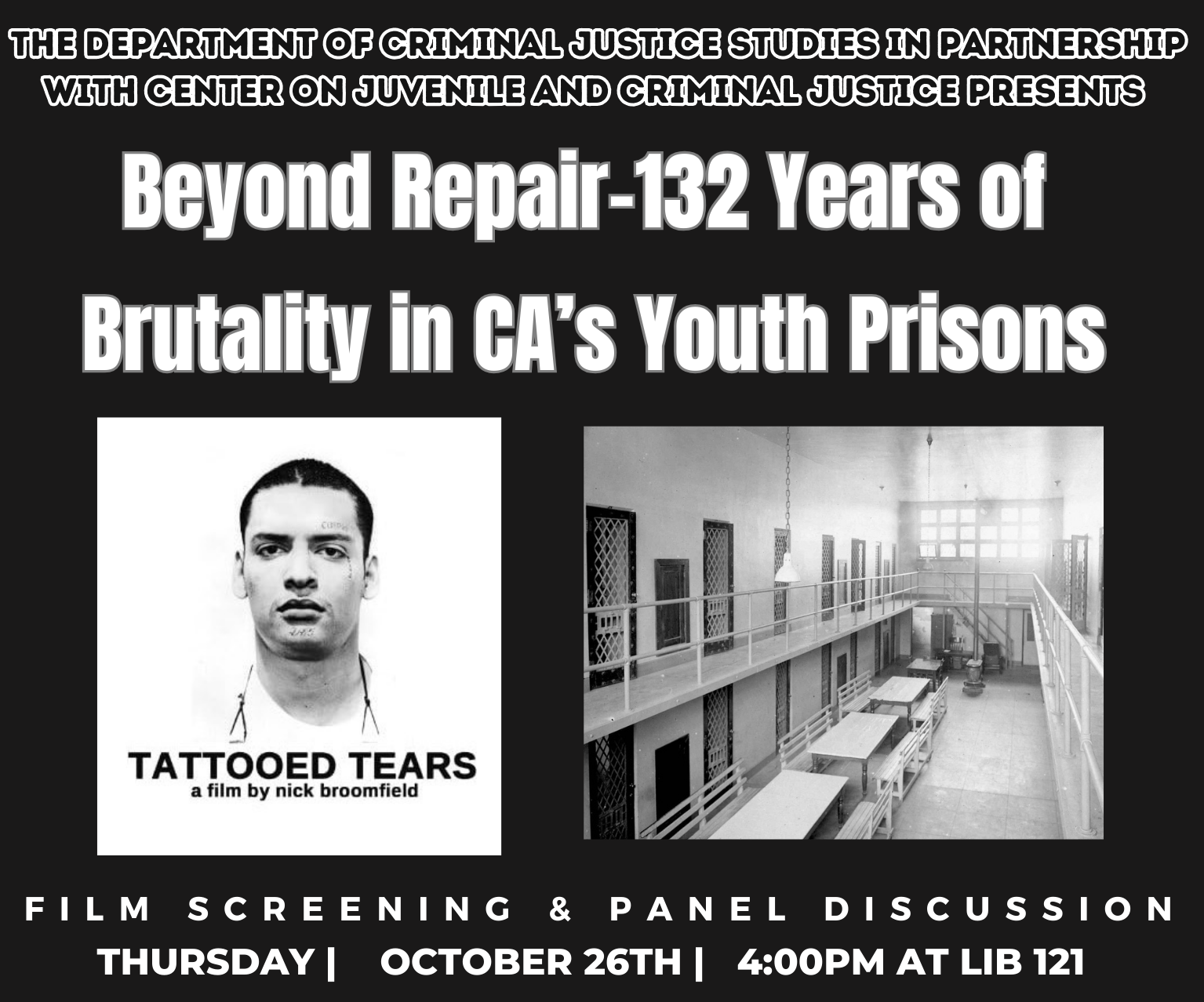
Thursday, Oct. 26, 4–6:30 p.m., LIB 121
The Crime & Justice Film Series is proud to present a film screening and inter-generational panel discussion with former wards of the state. Space is limited; reserve your ticket at the Eventbrite page.
Wednesday, Nov. 1, 3:30–5 p.m., LIB 121
The CHSS Teaching Academy is excited to host its first workshop of the academic year. Please join us for “Developing an Engaged Pedagogy: ‘Revisioning’ the Classroom Using the Social Justice Syllabus Design Tool.”
The Social Justice Syllabus Design Tool (SJSDT) is JCSCORE's #1 most read article. Much of that is due to the fact that educators are seeking to discover meaningful ways in which love and justice can be centered in the spaces that we co-create with our students... spaces in which we and our students can show up fully and experience the content as relevant to our lives and communities. The SJSDT has been recognized as a leading resource by many higher education institutions in how to do just that and has been used in faculty orientations and faculty development trainings across the country. Training in the SJSDT not only provides educators and staff with an in-depth understanding of what it means to “do” social justice in the classroom, but what it means to “be” social justice in the classroom and through various strategies and activities co-create counterspaces with students where personal and community transformation can occur.
Using critical reflexivity techniques, we will not only explore what social justice educators do in the classroom but also who social justice educators are and can be. We will take a collective deep dive and briefly engage in strategies that promote the embodiment of 1) relationship, 2) community, 3) a growth mindset process, and 4) radical self-care in the classroom. All educators are welcome and will benefit from this training. Staff who facilitate educational workshops on campus would also benefit from this workshop as well.
Facilitated by Sherria Taylor, associate professor of Child & Adolescent Development.
M.A. in Gerontology Program
Wednesday, Oct. 18, 6 p.m., Zoom
Master of Public Administration (MPA) Program
Master of Social Work (MSW) Program
Wednesday, Oct. 11, 6:30 p.m., Zoom
Wednesday, Nov. 8, 6:30 p.m., Zoom
Wednesday, Dec. 6, 6:30 p.m., Zoom
Willie L. Brown, Jr. Graduate Fellowship
Alumni Corner
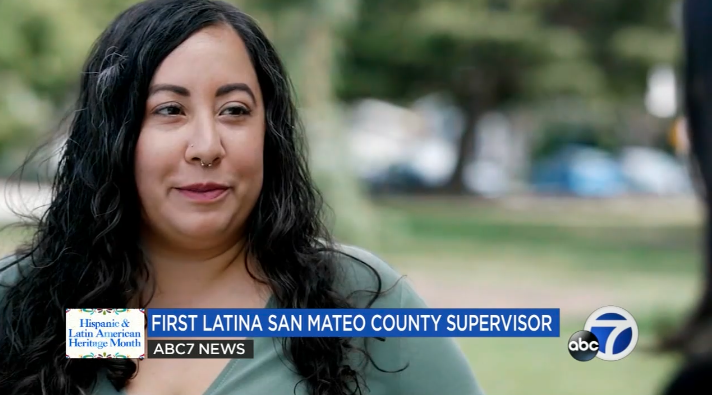
Watch or read interview with Noelia Corzo (Oct. 4, 2023)
For Hispanic Heritage Month, ABC7 News profiled Noelia Corzo (B.A., Sociology, ’12), who made history as the first Latina supervisor elected to the San Mateo County Board of Supervisors.
A lifelong resident of San Mateo County, Corzo serves the community in which she was raised. She is a single mom and the daughter of Guatemalan immigrants. She has worked as a social worker, foster youth advocate and community organizer. She was twice elected board trustee of the San Mateo-Foster City School District and served as board president during COVID. Not only is Corzo the first Latina on the San Mateo County Board of Supervisors, she is currently the only woman on the board. Corzo represents District Two which is made up of San Mateo, Foster City and over half of Belmont.
—Noelia Corzo
CHSS in the Media
Associate Professor César “che” Rodríguez was recently interviewed by “Millennials are Killing Capitalism,” a long-form interview podcast series that features critical scholarship produced by organizers and intellectuals.
Rodriguez currently serves as an associate professor in Criminal Justice Studies and will be joining the Department of Race & Resistance Studies in Spring ’24.
This interview revolves around Rodriguez’ article titled, “‘Oscar Did Not Die in Vain’: Revelous Citizen Journalism, Righteous/Riotous Work, and the Gains of the Oscar Grant Moment in Oakland, California,” which was published in Social Justice.
In this text, Rodriguez demonstrates how popular mobilizations in Oakland during the “Oscar Grant moment” (circa January 2009) disrupted the cultural strategies and legal protections that create impunity for law enforcement officers and agencies responsible for extrajudicial police killings. This resulted in the historic incarceration of a law enforcement officer (ex BART police officer Johannes Mehserle) for the on-duty killing of Oscar Grant, a young Black father from Hayward. Furthermore, this article illustrates how these popular mobilizations forced brief public transparency and reforms of a local law enforcement agency (BART PD).
This is a two-part interview, and the links are included below.
Part 1: “Record the Noise” - César “che” Rodríguez on Racial Regimes and Blues Epistemology in the Lead-up to the Oscar Grant Moment (Sept. 22, 2023)
Part 2 : “Popular Coercion From Below” - César “che” Rodríguez on Why Oscar Grant Did Not Die in Vain (Sept. 25, 2023)
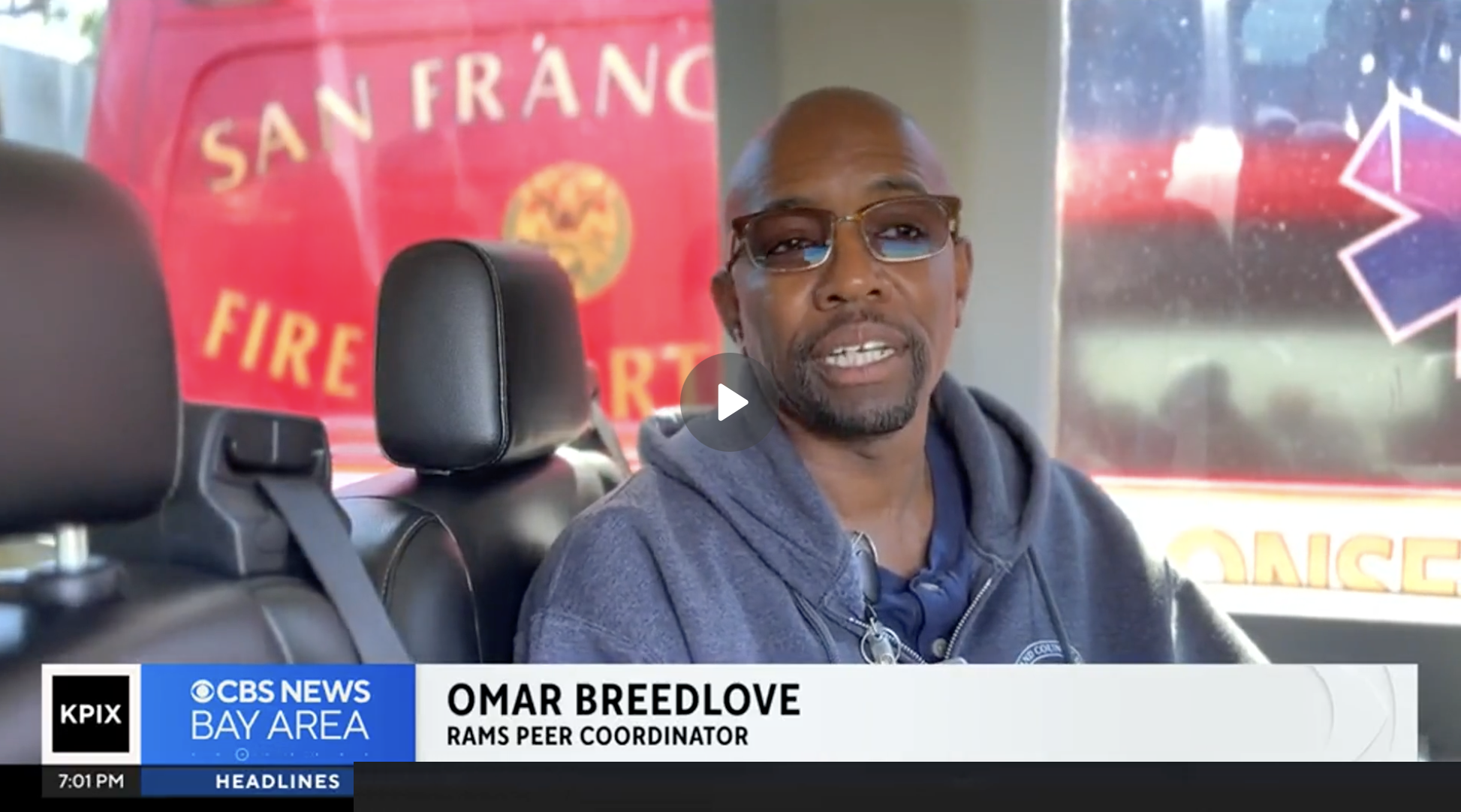
Watch or read CBS News Bay Area story (August 15, 2023)
BASW student Omar Breedlove was interviewed by CBS News Bay Area about his work as a peer counselor with San Francisco’s Street Crisis Response Team. Breedlove had firsthand experience with homelessness and substance abuse, and he now uses that experience to help others who are grappling with the same issues.
Featured Photo
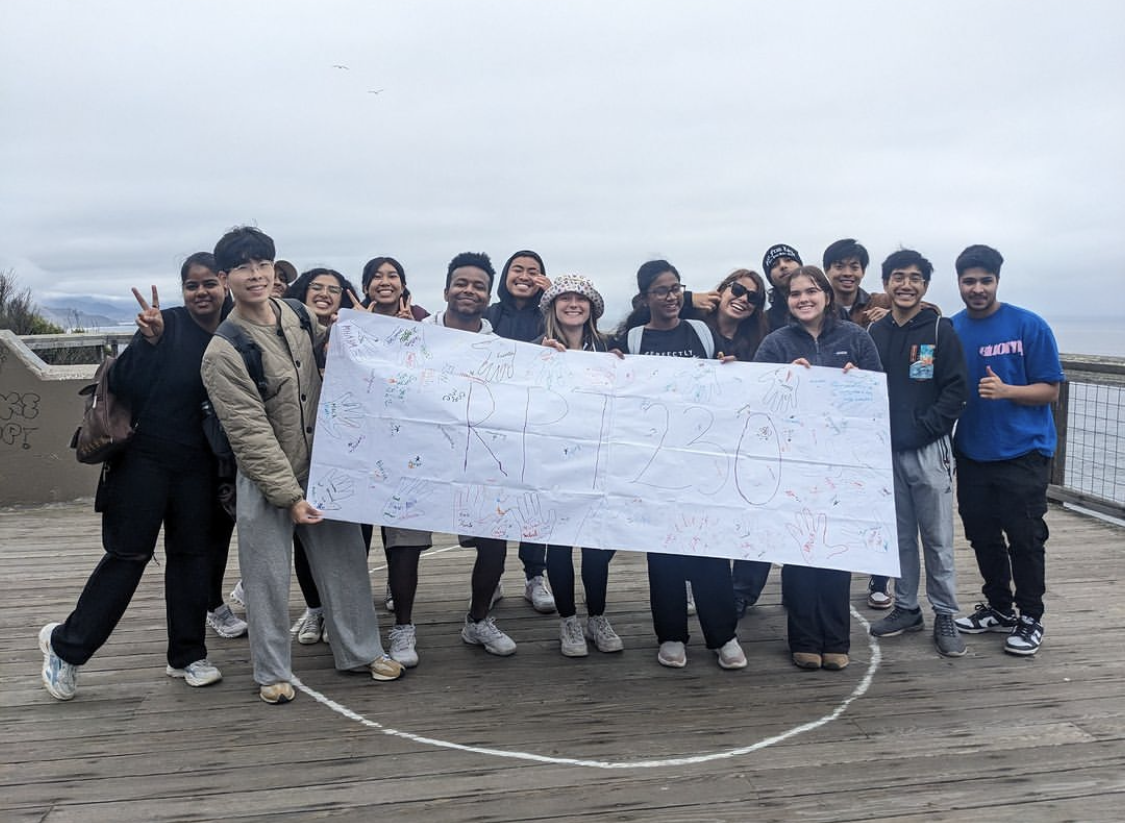
Students in Susie Barr-Wilson’s “RPT 230: Growth Through Adventure” developed a community agreement while ambulating around Fort Funston. The community agreement supports the process of learning and further explores the idea of how communication and community can support positive adventure experiences. Photo courtesy of the Department of Recreation, Parks & Tourism on Instagram @sfsurpt.
Submit an Item
The deadline to submit items for the October 25, 2023 issue of CHSS Connection is October 20. Send submissions to Michael Broder at mbroder@sfsu.edu.